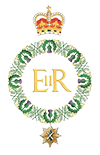A Child of Waterloo
Extract from ‘The Thistle’, June 1895
From an article written anonymously, signed “An Old Milestone”
“During the Peninsular war and at Waterloo we had four pucka battalions. according to regimental tradition the 3rd behaved gloriously in the field, and earned the Peninsular honours, while it, and the 4th fought together at Waterloo. The 4th were a new levy composed mostly of lads who were, owing to their immature condition nicknamed the “Stick i’ the Muds“, but if the boys stuck in the mud it was with their faces to the enemy, and those who fell did so nobly, as friends and foes testified to their honour. There were no squad bags in those days, and a soldier carried all his belongings on his back and considering the clumsy make and ponderous weight of his equipment, no wonder the poor lads stuck i’ the mud.
At the time I write of, it was customary for soldiers’ wives to follow and accompany their husbands’ regiments on active service, many of them being present at every engagement in the peninsular from Corunna to Waterloo

Donald Crawford was rescued on the field of Waterloo while nestling as a child in the bosom of his mother who was killed in action. It may be asked what she was doing there, but the poor woman knew of nowhere else to go, and naturally followed the regiment in whose ranks her husband fought and fell on the same day as her.
Fortunately for wee Donald he was seen by a private who was fighting in the ranks and picked him up out of his inanimate mother’s arms, laying him lengthways across his back on the top of his knapsack lodged between his rolled greatcoat and the nape of his neck, and immediately resumed his place in the front rank of the fighting line, where the little boy was as happy as a sand boy.
I regret, at the distance of time, I cannot recall the good man’s name…”
Donald revered the man’s memory with all the affection of a son for his father and was brought up in the regiment by his guardian, and later attained the rank of Sergeant.
“The incident of his having been picked up on the field of Waterloo, having been brought to the notice of the Duke of Wellington, he ordered him to be granted the Waterloo Medal… as he was under fire during the whole three day engagement.
He wore the medal on his left breast, until he was discharged to pension in the year 1851, at Halifax, Nova Scotia, where he elected to settle, like so many other time-expired men of his regiment, most of whom did well in colonial life – the child of Waterloo.”

